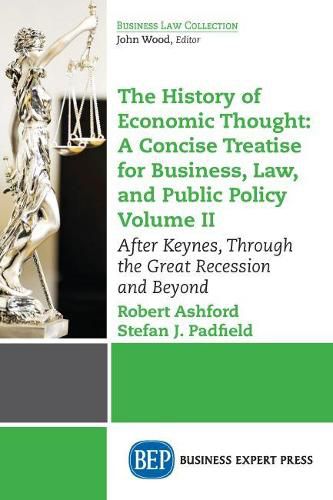Readings Newsletter
Become a Readings Member to make your shopping experience even easier.
Sign in or sign up for free!
You’re not far away from qualifying for FREE standard shipping within Australia
You’ve qualified for FREE standard shipping within Australia
The cart is loading…






This title is printed to order. This book may have been self-published. If so, we cannot guarantee the quality of the content. In the main most books will have gone through the editing process however some may not. We therefore suggest that you be aware of this before ordering this book. If in doubt check either the author or publisher’s details as we are unable to accept any returns unless they are faulty. Please contact us if you have any questions.
The subject of this book is the history of economic thought, including the less-commonly discussed schools of binary and socio-economics. The intended audience is students, business people, regulators, legislators, and scholars who are relatively unfamiliar with the primary competing economic theories of our day. Readers will benefit by coming away from the book with a better understanding of the context within which economic arguments are made. They will be better able to think critically about the assumptions underlying various economic proposals, and the history behind those assumptions.
$9.00 standard shipping within Australia
FREE standard shipping within Australia for orders over $100.00
Express & International shipping calculated at checkout
This title is printed to order. This book may have been self-published. If so, we cannot guarantee the quality of the content. In the main most books will have gone through the editing process however some may not. We therefore suggest that you be aware of this before ordering this book. If in doubt check either the author or publisher’s details as we are unable to accept any returns unless they are faulty. Please contact us if you have any questions.
The subject of this book is the history of economic thought, including the less-commonly discussed schools of binary and socio-economics. The intended audience is students, business people, regulators, legislators, and scholars who are relatively unfamiliar with the primary competing economic theories of our day. Readers will benefit by coming away from the book with a better understanding of the context within which economic arguments are made. They will be better able to think critically about the assumptions underlying various economic proposals, and the history behind those assumptions.